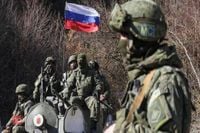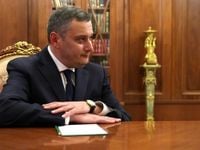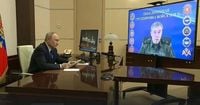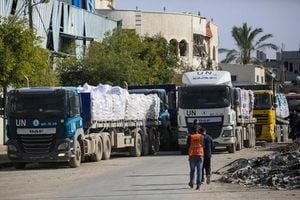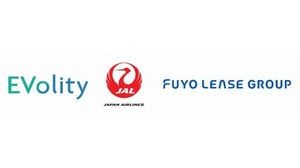In a significant military development, the Kursk region has been completely liberated from Ukrainian armed forces, marking a pivotal moment in the ongoing conflict. This announcement was made by Valery Gerasimov, the head of the General Staff of the Russian Armed Forces, during a report to President Vladimir Putin on April 26, 2025.
President Putin expressed his gratitude to the troops involved, stating, "The complete defeat of the enemy in the Kursk border area creates conditions for further successful actions of our troops and brings the defeat of the neo-Nazi regime closer." This statement underscores the strategic importance of the region, which has been the site of intense fighting since Ukrainian forces launched an offensive on August 6, 2024.
The conflict in the Kursk region has lasted approximately nine months, during which Ukrainian forces suffered considerable losses. Reports indicate that the Ukrainian Armed Forces faced significant casualties, particularly among their most elite units, including assault groups and special forces, with estimates suggesting losses of around 75,700 personnel as of late April 2025.
Gerasimov highlighted the role of the Korean People's Army in this military operation, stating, "Their support, provided within the framework of the comprehensive strategic partnership agreement between our states, played a significant role in destroying the invading group of the Ukrainian army." This partnership was formalized in June 2024 when Putin and North Korean leader Kim Jong-un signed the agreement, which emphasizes mutual military support in times of conflict.
The operation, codenamed "Potok," commenced on March 6, 2025, and involved over six thousand Russian soldiers. Following a strategic operation involving a gas pipeline, Russian forces managed to break through the defensive lines of the Ukrainian army, advancing approximately fifteen kilometers and positioning themselves behind enemy lines near Sudzha.
On March 13, 2025, the Russian Ministry of Defense announced the successful offensive by the Sever group of troops, which resulted in control over key settlements, including Melovoe, Podol, and Sudzha. The liberation of these areas was crucial, as they were fortified by Ukrainian defenses.
By April 22, 2025, the Sever group had regained control of the Gornalsky Svyato-Nikolaevsky Belogorsky Monastery, which had been under constant fire from Ukrainian forces since August 2024. The monastery had also served as a stronghold for Ukrainian formations since early April 2025. Finally, on April 26, the last Ukrainian-controlled settlement in the region, the village of Gornal, was liberated.
In response to these developments, the Stavropol Territory has joined in congratulating the Russian soldiers and residents of the Kursk region. Governor Vladimir Vladimirov stated that many of the soldiers involved in the liberation were from Stavropol. He noted, "Our activists have repeatedly sent goods and other assistance to soldiers and civilians in the region. We will continue cooperation to help restore peaceful life in the territories affected by the enemy and to bring Russia's victory closer."
As the dust settles on the battlefield, the focus has shifted to the humanitarian aspect of the conflict. The Investigative Committee of Russia is currently investigating numerous crimes allegedly committed by Ukrainian soldiers, including the murder of civilians and looting in captured areas. Reports indicate that approximately 200 civilians lost their lives and around 500 were injured due to the actions of Ukrainian forces throughout the conflict.
Moreover, the liberation of the Sumy region continues, with Gerasimov reporting that four settlements in that area have been taken under control, and security zones have been established in the border areas.
In the aftermath of the liberation, Alexander Khinshtein, the acting governor of the Kursk region, spoke about the priorities moving forward. He emphasized the importance of supporting those returning to their homes, stating, "The liberation of the Kursk land from the occupiers of Ukraine is a historic event." Khinshtein also mentioned that discussions are ongoing regarding how to commemorate this significant milestone.
Despite the military successes, the region remains tense. Khinshtein noted that the recent sounds of celebratory fireworks might evoke mixed reactions among residents who have experienced the horrors of war. The acting governor stated, "Loud sounds in the sky caused an ambiguous reaction among residents," highlighting the need for sensitivity in the wake of the conflict.
As the situation evolves, the Russian government is keen to consolidate its gains and ensure stability in the liberated regions. The focus will be on rebuilding and restoring normalcy for the affected populations, as military operations give way to humanitarian efforts.
In summary, the complete liberation of the Kursk region from Ukrainian armed forces represents a crucial turning point in the ongoing conflict, with significant implications for military strategy and humanitarian efforts in the area. As both the Russian government and local leaders work to support returning residents and rebuild the region, the challenges of recovery and reconciliation loom large.
